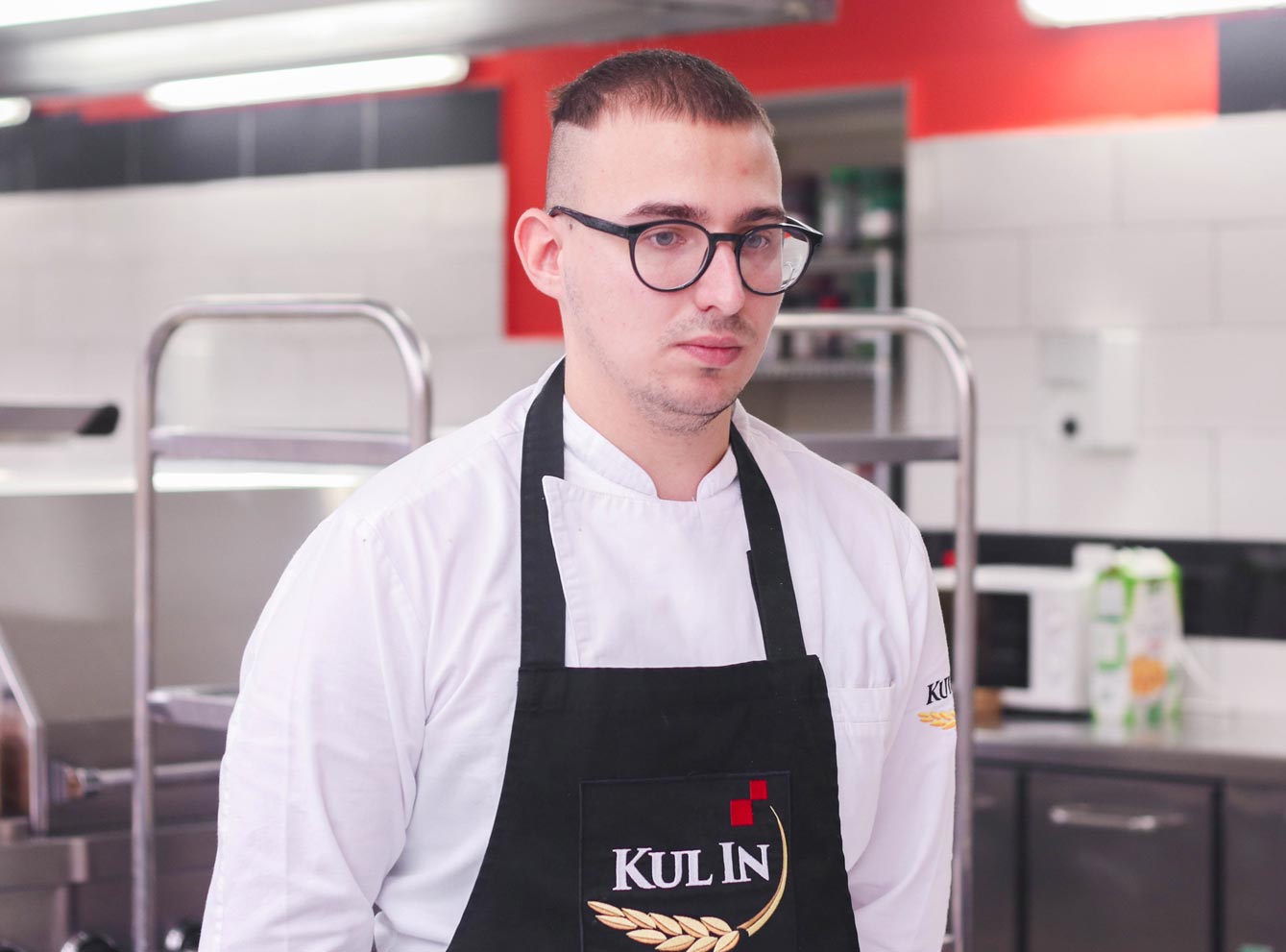AŠČINICA AS A CONCEPT
Kul IN: Tell us more about your professional path and your family Aščinica. Aščinicas are not common here, so feel free to explain the idea of asčinica.
- Aščinicas were originally small restaurants that worked within local bazaars, and they served lunch to mostly workers and merchants. They would be open until approx. 2 pm while the bazaar was active. Over time, the aščinicas were modernized and began to apply longer working hours. My parents founded our Aščinica Asdž in 1994, originally it was a classic aščinica with no more than 10 dishes. I have been actively participating in the work of the family asčinica for years, but until now I have not been involved in the culinary part. Today, we have 40-50 options in our daily offer, we make everything at home, we have a small production. We are now somewhere between an aščinica and a restaurant, our guests are locals, but also tourists, businessmen, students, senior citizens. I would describe the food as fast slow food - the dishes are prepared slowly, but you get what you ordered quickly , some dishes need to rest overnight, but once you in the Aščinica, it takes 3-5 minutes to have your order ready.
CULINARY ARTS
Kul IN: What surprised you the most about culinary arts?
- I have been in the hospitality industry all my life – serving, organization, I had spent the least time in the kitchen, I worked more with the guests. Now I want to improve my knowledge and dedicate myself to work even more thoroughly. I was surprised by how much I don’t know, and when people realize their flaws and see how much they don’t know, only then can they go in the right direction.
Kul IN: Describe a stressful situation from the program and what did you learn from it?
– I had a problem with fish because I had never worked with it before, and when I saw that I found it challenging, I went to the fish market over the weekend, bought sea bream and sea bass, practiced and learned.
Kul IN: And the best part of the program?
– The pinnacle of culinary arts is a good piece of meat, and it was the best for me when we made steaks and red meat, there is a wide range of dishes that can be created with it. I am more fond of Balkan cuisine than sea bass!
Kul IN: What characteristics must a good chef have?
– He must be punctual, neat, intelligent, have the will to learn. Regardless of your years of experience, every chef has something new to learn. People interact with you differently when they see that you have knowledge, otherwise it is easy to manipulate you. It is important that you know how to point out mistakes and good things to people and step in when it gets too overwhelming.
MUHAMED 101
Kul IN: What kind of people do you like to work with?
– I like communicative and hardworking people, honest people. As far as the clientele is concerned, each of my guests is the same and dear to me, I appreciate every visit and I want to justify their trust with the best food, to express gratitude with maximum quality and service.
Kul IN: What are your plans for the next few years?
– I would like to further my education in hospitality management, my plan is to go to France for education. I want to return to Sarajevo and apply all the techniques and knowledge in my further work. I don’t want to change the Asčinica, my plan is just to apply the knowledge I’ve learned in my daily work, and in the future maybe in some other restaurant that will be a combination of Bosnian cuisine and modern culinary arts. I always want to be the best at what I do. Success is a great source of motivation for me.
Kul IN: And finally, what is a good gift for a chef?
– A day off or a good knife!



